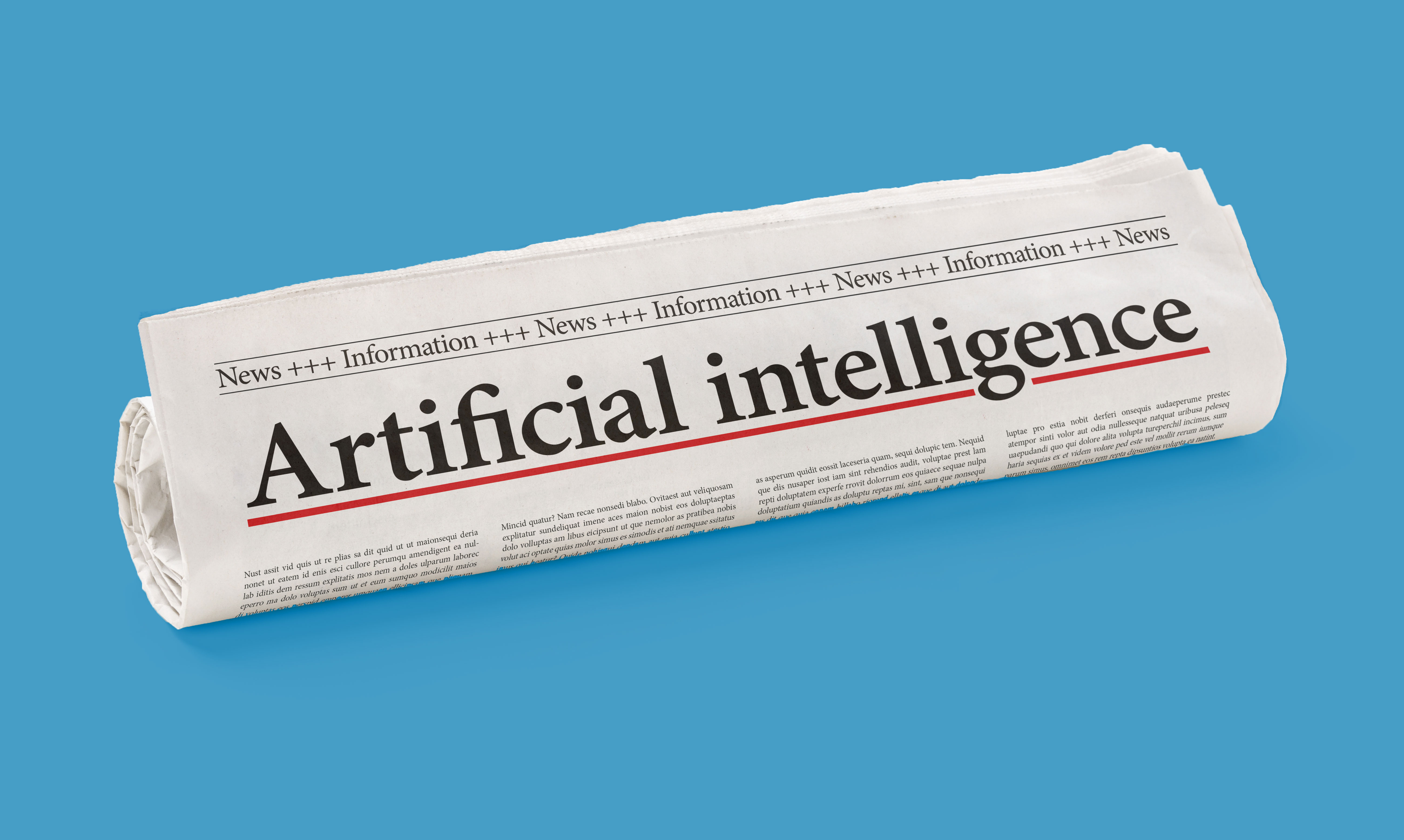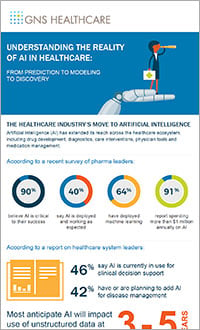
There is a wide and varied mix of opinions when it comes to artificial intelligence (AI). Peruse just about any publication and there’s likely to be an article or two on how AI will transform the way we live for the better or conversely how it is sure to overtake our lives in unimaginable ways.
Adding to the confusion, you have technology visionaries like Elon Musk saying, “I’m close to artificial intelligence (AI) and it scares the hell out of me”. Or Bill Gates calling AI “our biggest existential threat.”1 Given those impressions, it’s no wonder that many people today still fear the power of AI. But that’s not the whole story.
The hype of AI
There’s no question that AI is an all-consuming topic today. A Google search for “artificial intelligence” returns 441 million results. According to McKinsey, twice as many articles on AI were published in 2016 compared to 2015 and four times more than in 2014.2 Gartner has AI on the rise on its Hype Cycle and doesn’t see the trend reaching a plateau for another decade.3
Despite some level of distrust and skepticism, everyone from business executives, to government leaders to the media wants to discuss AI, even if some of them struggle to fully comprehend the nuances between various types of AI or what it can do for them.
AI is already seeping into much of our day-to-day life by suggesting what movies we should watch, what clothes to buy and the best route to avoid traffic. Many people are already leveraging some sort of basic AI with Internet of Things devices like Alexa that can regulate the climate in your home or dig up that song you remember but can’t quite name.
The benefits of AI outweigh the fear
Amid the cacophony of debate enveloping AI, there are examples of real, practical, proven applications of its power and value.
AI is providing hope from research and development to the doctor’s office and providing a higher quality of life for many patients. Our collective goal should be to leverage the capabilities of AI and precision medicine to transform healthcare from being an observation-based industry into a discipline fueled by data and insights.
- Augmenting physician capacity: Some of the more provocative forecasts involving AI and medicine suggest that robots will be replacing doctors in 20 years. That is simply unrealistic. However, AI has the potential to greatly assist physicians through computer-aided intelligence that accelerates the time-consuming record keeping and data analysis currently performed. A recent study found that physicians spend only 27 percent of their time on direct clinical face-to-face patient interaction but nearly half their time working on the EHR and desk work.4 By automating the administrative tasks, physicians are armed with better information to provide recommendations to their patients, while freeing up time for more face-to-face interactions, where their real skill set lies.
- Reducing the time to discovery: AI also promises to revolutionize the areas of disease research and drug development to improve outcomes and reduce the costs of R&D. AI can convert healthcare into a predictive science that gets to the underlying mechanisms of disease. Using data driven AI models like causal machine learning, researchers are better able to identify the subpopulations that will best respond to specific drugs rather than spending time and resources aiming for the “average patient.” (None of us are average)
- Making care more patient-centric: AI can prove hugely beneficial to patients by improving interactions which can lead to more empathetic care. By taking a more holistic approach to patients and leveraging data from multiple sources, clinicians and researchers are better able to get to the root of patient problems. AI can take health information generated by computers and make it understandable to a variety of audiences – clinicians, researchers, patients, and health plans – which in the end leads to better care outcomes.
In order for this type of progress to continue, it’s important to continue the conversation in a thoughtful way. Progress is scary, but not tapping the potential of AI to understand and improve our health, is frankly scarier.
To learn more about the impact AI can make across the healthcare industry, download our infographic.
[1] Bill Gates on dangers of artificial intelligence: ‘I don’t understand why some people are not concerned, by Peter Holley, Washington Post, January 29, 2015.
[2] Have We Reached the Peak of AI’s Hype? By Roman Stanek, Forbes Technology Council, Forbes, March 7, 2018.
[3] Top Trends in the Gartner Hype Cycle for Emerging Technologies, 2017, by Kasey Panetta, August 15, 2017.
[4] Allocation of Physician Time in Ambulatory Practice: A Time and Motion Study in 4 Specialties, Annals of Internal Medicine, December 6, 2016


